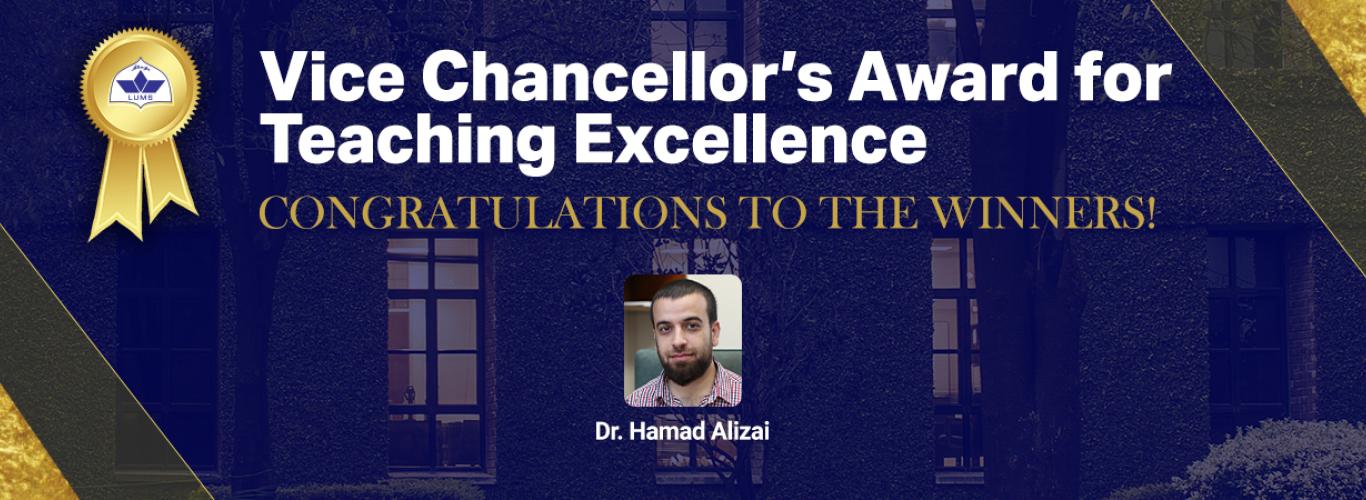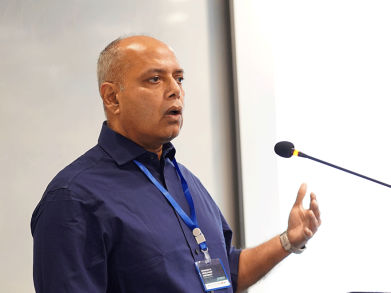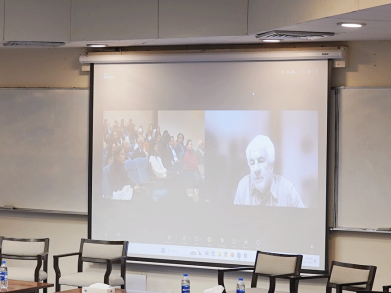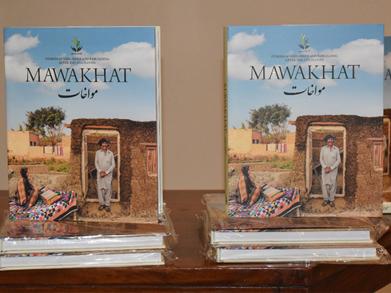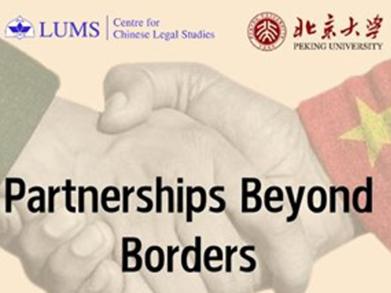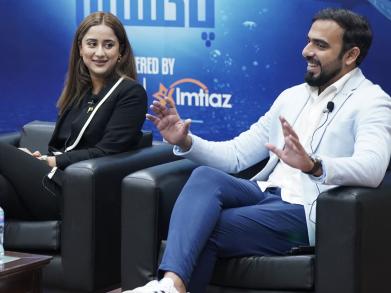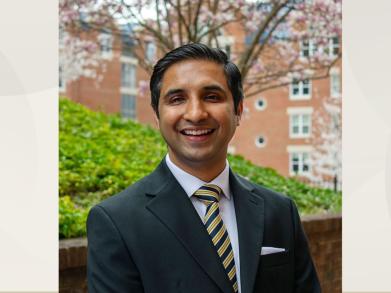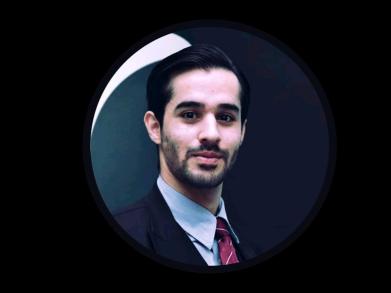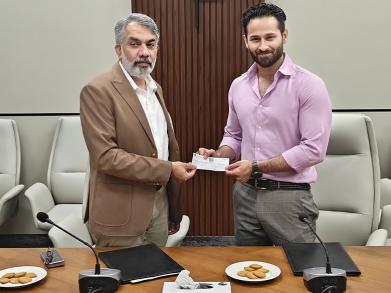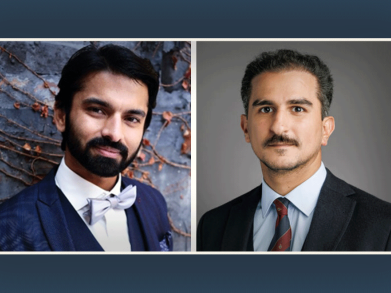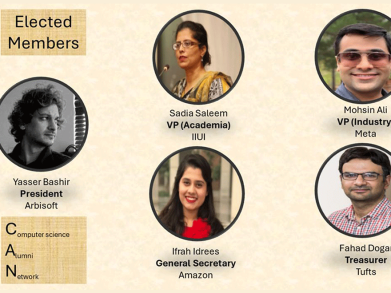In Conversation with Dr. Muhammad Hamad Alizai, Awardee Vice Chancellor’s Award for Teaching Excellence 2021-22
Dr. Muhammad Hamad Alizai is an exceptional computer science teacher who makes enduring contributions to his peers’ and his students’ learning. His commitment to improving teaching through the Learning Institute demonstrates exceptional educational leadership.
To his students, Dr. Alizai “…has the gift of teaching. He has the rare ability to truly light up the classroom with inspiration.” Whether it is through peer teaching, novel discussion techniques, authentic assessments, or technology, he engages students at every level and inspires them with unwavering support and creative energies.
Dr. Alizai works meticulously to give students space in class to collaborate, engage, and learn. Frequent student feedback informs his teaching and is another indication that he puts student learning first. As one student highlighted, “It is not always easy to change students' lives, so it takes a great teacher like Dr. Alizai to do so. He is a true role model for all his students, and I learned the meaning of learning from him.”
Dr. Alizai is deeply dedicated to learning and to sharing that learning to help others to grow and develop – and this makes him one of LUMS most treasured teachers.
We interviewed Dr. Alizai to learn more about his thoughts on winning this award, and his experiences in the classroom.
What innovative pedagogical approaches do you practice to keep students excited about learning?
Being a computer scientist, I try to innovate new pedagogical approaches using technology that makes an impact on student engagement and learning. I employ technology in the service of teaching to create a digital classroom community that empowers students to support each other's learning. For instance, I have been using polling tools for greater engagement in larger classes, instant messaging tools for wide-ranging interaction between instructors and students, and online forms as a platform for collecting and sharing feedback.
I was in a good position to offer quality learning experiences online because I had already been using educational technology in my classes before the pandemic. However, I quickly realised that all the students did not have high-speed internet access. I addressed this digital divide among students by creating synchronous and asynchronous versions of all courses: delivering lectures online and making recordings available through interactive platforms like Youtube and VideoAnt. Students could freely choose between either mode of participation in my lectures, depending on their timing and connectivity constraints. For example, VideoAnt allowed students to annotate lecture videos and get responses from me on the same platform. Students watched videos asynchronously and annotated them with comments and questions.
What inspired you to become a teacher?
The most direct and powerful ways in which a teacher can contribute to the growth of society. Every year hundreds of students graduate from LUMS to play an important role in society. Helping these students in many ways to grow in their future professional and societal roles is a source of great satisfaction. Teaching computer science is a unique privilege because it allows you to quickly observe the impact of your teaching on society and the market.
Amongst your various achievements, what is one as a teacher that you are most proud of?
It is hard to name one. As I said, our students usually get employed or inducted into postgraduate programmes right after graduation. My greatest achievement is to see them doing well in their fields and their role as an extension of what they learned in my classes. The excellent feedback about our students from their supervisors and employers is immensely gratifying.
What value does the Vice Chancellor’s Award for Teaching Excellence hold for you?
I feel being acknowledged for my teaching efforts over the past decade but also more responsibility going forward as we, at LUMS, address the challenges of teaching and learning in the 21st century. This award will keep me motivated to do my best as a teacher for the rest of my teaching career. It gives me more confidence about the route that I have taken. I will continue to experiment and reflect on my teaching philosophy and methodology to keep growing as a teacher. I see this award as a starting milestone in my teaching and learning journey. I am motivated to engage with my peers in broader discussions about how we can collectively impact student learning and achievement at LUMS.
How have interactions with your students informed your teaching throughout your career?
Multiple forms of student feedback drive my teaching at different points in the semester. Going into the next class without analysing student feedback on previous lessons feels like I'm leaving my students behind; so, I seek their feedback often. I draw confidence from feedback because I learn about the gaps my students may be experiencing in their learning. I solicit student input at varying intervals throughout the semester. For example, I establish instant messaging channels for live feedback during a class, which helps me adapt my teaching on the fly. For example, when students say, "you are moving fast, please slow down!" I can see the lecture the way they see it.
I also make time in class for regular feedback on classroom techniques, assessments, TA support, and all other aspects of the course. Regular feedback is powerful because it gives me accurate data about student learning. Instead of projecting my interpretations of student experiences, I get a better sense of the reality inside the learners' heads. One of my favourite activities to do in class is to hold inclusive discussions with students on their feedback responses. I find students engage better and feel greater ownership of what we are doing in the class when their responses are acknowledged. These conversations clarify misunderstandings, provide deeper insights into students' perspectives and promote mutual respect and understanding

